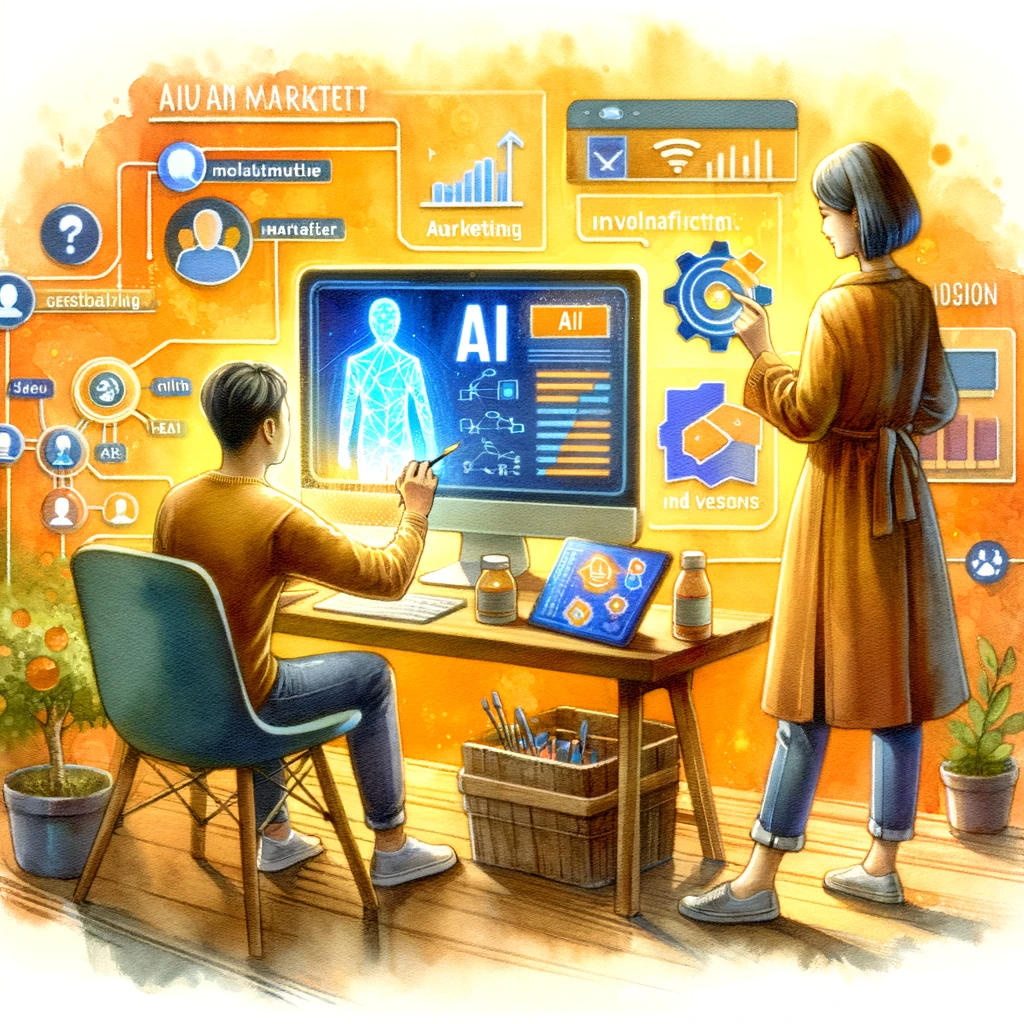AI-Powered Marketing: Trends in 2024
Hello folks. I'm writing this on the 1st of January 2024, so a happy new year to you.
Coming into 2024, I'm taking the time to reflect on the current status of the usage of Artificial Intelligence (AI) within our work within Marketing Tech (or MarTech as it is now known). A lot has been written online and said offline, and I've been reading and looking into different views and data about this. Perhaps like most of you reading this, one question we'll have is "What will it look like in 2024?"
Doing research, I've come across some resources such as the 2024 Trend Report by Trend Hunter and also a piece written by Scott Clark titled "The 2024 AI Roadmap for Marketers".
So let us distill them and think about the trends we can see for AI-powered marketing in 2024.

Trend 1: AI-Generated Advertising Platforms
Startups such as Picsart are launching AI platforms that create custom advertisements. These platforms blend image, video, and text generation, streamlining marketing campaigns and enhancing ROI by automating personalization and targeting while improving ad ops.
Trend 2: Omnichannel Marketing with AI
Platforms like Skai offer an omnichannel approach, leveraging AI for cohesive and effective marketing across multiple channels.
A one-stop channel for customers offers a unified experience and has already been a major point that companies offering B2C services want to improve. Up until now, a major stumbling block is the unification of customer data that was captured from different channels. With AI, companies can now consolidate all that data and create a comprehensive customer journey for reference.
Trend 3: AI in Art Creation
AI algorithms are now used to generate detailed artwork, simplifying the art-creation process for marketing materials and even initial concepts for new products.
DALL-E is one example where you can use AI to create preliminary art concepts for marketing campaigns. With AI, you can quickly create multiple versions of a concept, and refine it as you go along.
Trend 4: Specialized AI Computing Hardware
It's not only NVIDIA now; Brands in the computer hardware space are responding to the AI trend by launching hardware optimized for AI tasks, indicating a focus on AI-related products and tools. For example, AMD introduced the 'MI300x' chip optimized for AI workloads and Gartner also predicts that the semiconductor industry to grow by 16% in 2024.
Trend 5: Generative AI in Video Marketing
Startups are introducing tools that use generative AI to create detailed custom videos from text prompts, ideal for creative expression and advertising.
Examples are companies like Kapwing which helps its customers generate subtitles for videos, while Synthesia generates videos from text prompts that you give..
Trend 6: AI in Gaming for Marketing
I don't play many games myself but the 2024 Trend Report mentions that companies like Replica Studios have introduced AI-powered Smart Non-Player Characters (or NPCs) for its Unreal Engine.
NPCs now will have life and character within your game, making it more realistic and immersive than ever before.
Trend 7: AI Usage in Text Content Creation
And of course, the trend of using AI to generate content for blogs and marketing emails will continue. From the creation and usage of the Large Language Model (LLM) perspective, this is the most common and perhaps natural usage.
We all start to realize that simply writing prompts into ChatGPT has its issues such as lack of creativity or writing with SEO in mind and a limited understanding of the context of the content, content creation using AI needs to be just more than spending time trying to get the right prompts to make the AI spit text which says a lot but mean nothing.
Trend 8: The Rise of "Machine Customers"
"Machine Customers" refer to automated systems that make decisions based on a certain algorithm, instead of your typical "human customers". With the rise of AI, these systems can make better decisions depending on ever-evolving data. We'll see more and more of these systems taking over the human function of purchasing online.
But There Are Of Course Challenges
I agree with Scott Clark and see two main challenges going forward, which might go even beyond 2024: Privacy and Authenticity.
Privacy
The use of AI in marketing often involves collecting and analyzing vast amounts of consumer data to personalize experiences. This raises significant privacy concerns, especially regarding how data is collected, stored, and used.
With regulations like GDPR in Europe and CCPA in California, companies using AI in marketing must ensure strict compliance with privacy laws, which can vary significantly across regions. Companies need to take this into account, and services that allow companies to stay compliant with relevant laws will be much needed in the future.
Authenticity
AI tools, while efficient in content creation, often struggle with producing truly original and authentic content. There's a risk of creating generic, formulaic content that doesn't resonate with the audience. We all know how ChatGPT ends everything with "In Conclusion".
AI also doesn't know what your brands "sound like". Unless trained, maintaining a consistent and authentic brand voice can be challenging when using AI for content creation. The content generated by AI might lack the nuances and understanding of a brand's unique voice and ethos. An easy way to train and customize AI to generate content that follows your brand voice will be much needed in the future. The rise of many so-called "open-source" LLM will have a positive effect on this.
At The End Of It
At the end of it, the trends for AI in 2024 will continue to be around the idea of doing more with less. As we realize that AI doesn't do things as well as we thought it would and the hype of AI dies off, we will start to find usages that will be "good enough" for our own needs.
